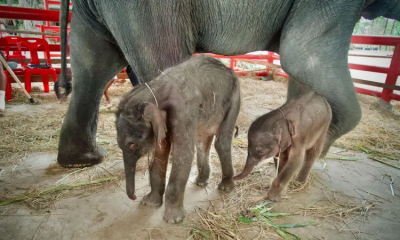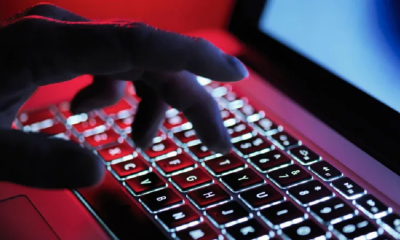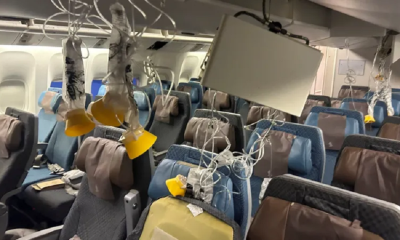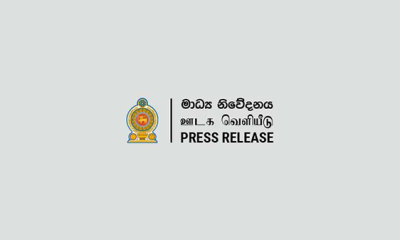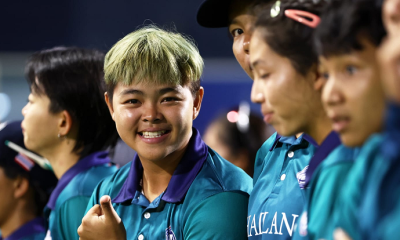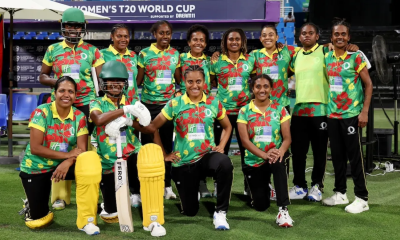Foreign News
Thai court drops case against former PM Yingluck Shinawatra
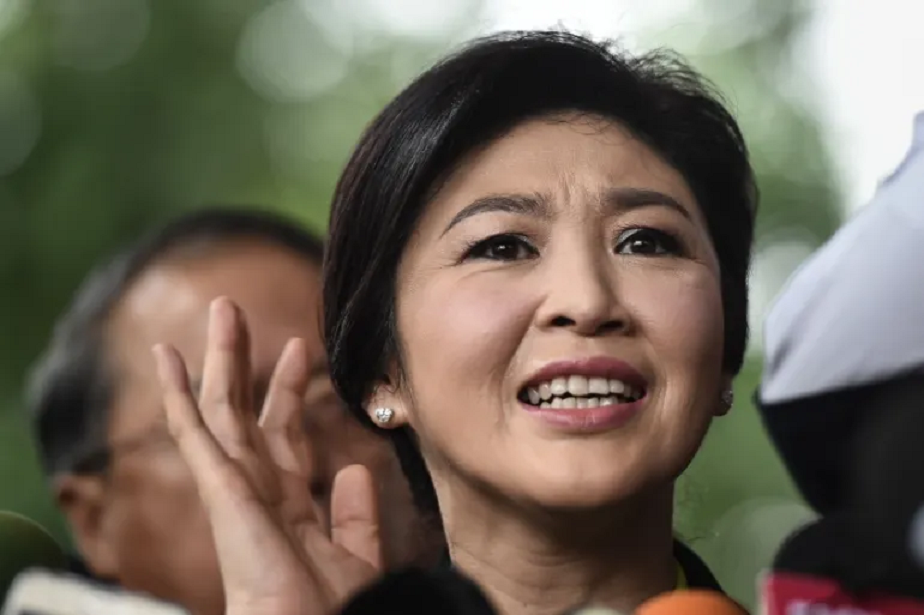
Thailand’s top court has acquitted former Prime Minister Yingluck Shinawatra in a corruption case during her time in office more than a decade ago.
The ruling on Monday is the latest legal success for the influential Shinawatra family. In February, Yingluck’s brother Thaksin – a two-time prime minister and figurehead of the Pheu Thai Party – was released on parole after serving six months into a commuted prison sentence for abuse of power and conflicts of interest.
Yingluck and five others were accused of mishandling 240 billion baht ($6.7bn) and not running a proper bidding process for a 2013 campaign set to promote Yingluck’s government’s infrastructure projects.
All nine judges in Thailand’s Supreme Court acquitted all defendants, saying in a statement they found “no intention” to benefit two major media outlets that won the contract at the time. “The project was done according to the regulations,” the court statement added.
Yingluck, who has lived abroad since 2017 to avoid jail over a subsidy scheme that caused billions of dollars in state losses, was not present at the court but was represented by her lawyer.
Thailand’s anti-corruption commission, which had filed the original complaint, has 30 days to appeal.
One of the defendants, Niwatthamrong Boonsongpaisan, who served as a deputy prime minister, told reporters they all “received the mercy from the court to dismiss the case”. Yingluck, 56, served as Thailand’s first female prime minister from 2011 until 2014 when her government was toppled in a coup. In 2017, Thailand’s Supreme Court sentenced Yingluck in absentia to five years in jail over a separate case of negligence in a rice subsidy promise to farmers during the 2011 election.
Thaksin had spent 15 years abroad after fleeing in the wake of his 2006 overthrow but made a dramatic return in August to face justice. He was transferred to hospital on his first night in jail and soon after, his eight-year term was commuted to one year by the king. His return and early release have fuelled persistent rumours that the tycoon made a behind-the-scenes deal with his powerful enemies, claims his allies and rivals have denied.
The clearance to Yingluck in the last remaining case against her could add to media speculation that she too will seek to return to Thailand. Prime Minister Srettha Thavisin, a close ally of the Shinawatras, has said the issue has not been raised.
Coverage of Thaksin’s release has been dominated by expectations he will seek to exert influence on Srettha’s government, or through his daughter Paetongtarn, who is Pheu Thai Party leader and eligible to become prime minister.
Srettha has repeatedly been asked by media if he would remain in charge with Thaksin now freed, questions he has rebuffed, insisting that he is still calling the shots in government. Thaksin has insisted he is retired and has been suffering from various health problems.
(Aljazeera)
Foreign News
Trump threatens to take back control of Panama Canal over ‘ridiculous fees’

United States President-elect Donald Trump has threatened to demand control of the Panama Canal after accusing Panama of charging excessive rates on US ships passing through one of the busiest waterways in the world.
“Our Navy and Commerce have been treated in a very unfair and injudicious way. The fees being charged by Panama are ridiculous,” Trump posted on his Truth Social platform on Saturday.
He later doubled down during a speech in Arizona on Sunday, saying the US was “being ripped off at the Panama Canal like we’re being ripped off everywhere else”.
The US largely built the canal in 1914 and administrated territory surrounding the passage for decades. But Washington fully handed control of the canal to Panama in 1999 after a period of joint administration.
Trump also hinted at China’s growing influence around the canal, which connects the Atlantic to the Pacific oceans.
“It was solely for Panama to manage, not China, or anyone else,” he said in the original post. “We would and will NEVER let it fall into the wrong hands!”
“It was not given for the benefit of others, but merely as a token of cooperation with us and Panama. If the moral and legal principles of this magnanimous gesture of giving are not followed, then we will demand that the Panama Canal be returned to us, in full, and without question,” Trump said.
Panama’s President Jose Raul Mulino firmly responded to Trump on Sunday.
“Every square meter of the Panama canal and the surrounding area belongs to Panama and will continue belonging so,” Mulino said in a recorded message posted on social media.
He further denied that China or any other country has direct or indirect influence over the canal. He added that fees were not decided on a “whim”.
The canal is key to Panama’s economy and generates about one-fifth of the government’s annual revenue.
[Aljazeera]
Foreign News
At least 13 people killed in Nigeria stampedes at charity events
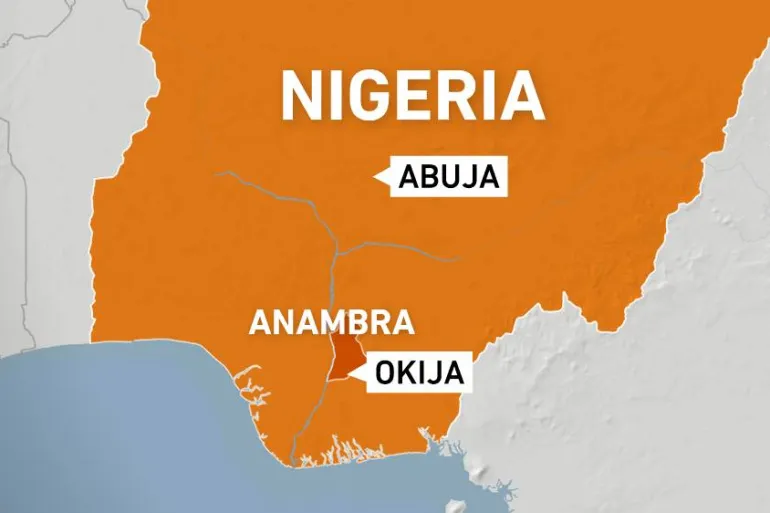
At least 13 people, including four children, have been killed in two incidents in Nigeria as large crowds gathered to collect food and clothing distributed at annual Christmas events, police say.
In the capital, Abuja, at least 10 people died on Saturday and many more were injured in a scramble to receive gifts of charity being distributed by the Holy Trinity Catholic Church in Maitama district.
“This unfortunate event, which took place around 6:30am [05:30 GMT], resulted in a stampede that claimed the lives of 10 individuals, including four children, and left eight others with varying degrees of injuries,” said Josephine Adeh, a police spokesperson.
In a separate incident in Okija in Anambra State in southern Nigeria, three people were killed in a crush at a charity event organised by a philanthropist, state police said.
“The event had not even started when the rush began,” police spokesman Tochukwu Ikenga said. There could be more deaths recorded as officers investigate, he said.
In both incidents, the victims were mostly women and children who were trampled as crowds tried to reach the provisions being offered.
[Aljazeera]
Foreign News
Nine-year-old among five killed in attack on German Christmas market
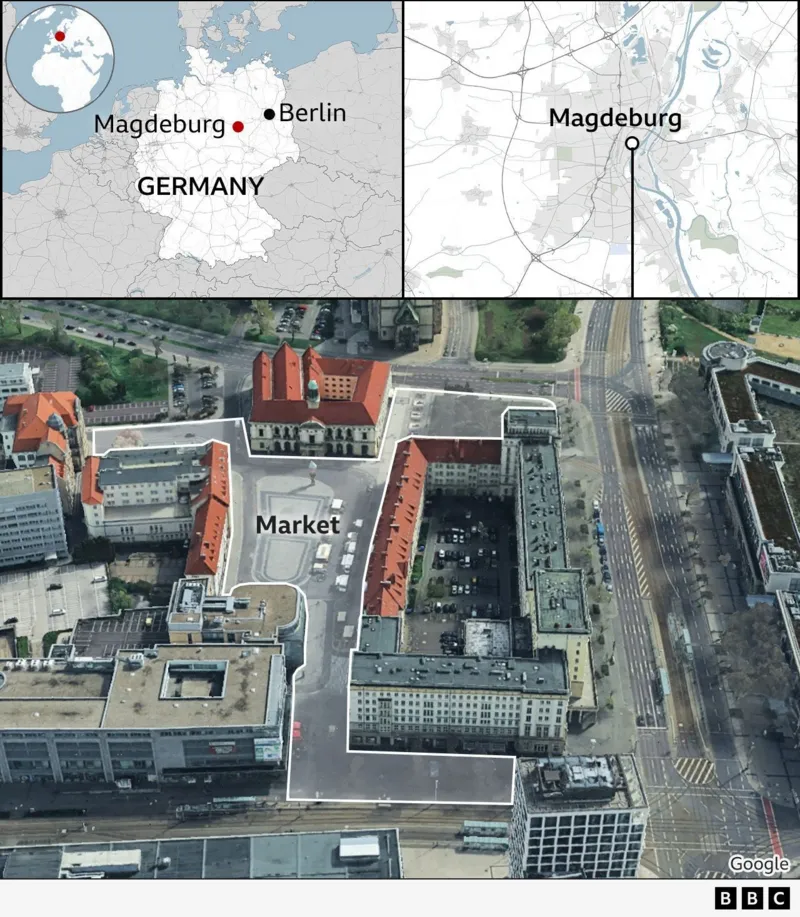
A nine-year-old child and four adults have been killed, and more than 200 injured after a car drove into a crowd at a Christmas market in the eastern German city of Magdeburg on Friday, officials say.
At least 41 people were critically injured after the incident which lasted around three minutes, police said.
The arrested suspect has been named in local media as Taleb al-Abdulmohsen, a 50-year-old Saudi citizen who arrived in Germany in 2006 and had worked as a doctor.
Reiner Haseloff, the premier of Saxony-Anhalt state, said a preliminary investigation suggested the alleged attacker was acting alone.
He added that he could not rule out more deaths due to the number of injured.
The suspect is currently being questioned and prosecutors expect to charge him with murder and attempted murder in due course, the head of the local prosecutor’s office said on Saturday.
Prosecutor Horst Walter Nopens added that the investigation was ongoing but suggested the background to the crime “could have been disgruntlement with the way Saudi Arabian refugees are treated in Germany”.
The suspected attacker has no known links to Islamist extremism – social media and posts online appear to suggest he had been critical of Islam.
Footage from the scene showed numerous emergency services vehicles attending while people lay on the ground.
Further footage then emerged of armed police confronting and arresting a man who can be seen lying on the ground by a stationary vehicle.
Unverified video on social media purports to show a car ploughing into the crowd at the market.
City officials said around 100 police, medics and firefighters, as well as 50 rescue service personnel rushed to the scene.
German Chancellor Olaf Scholz, who travelled to the city on Saturday, described the attack as a “dreadful tragedy” as “so many people were injured and killed with such brutality” in a place that is supposed to be “joyful”.
He told reporters that there were serious concerns for those who had been critically injured – which German media reports is in the dozens – and that “all resources” will be allocated to investigating the suspect behind the attack.
There would be a memorial service for the victims at the Magdeburg Cathedral later on Saturday, he added.
[BBC]
-
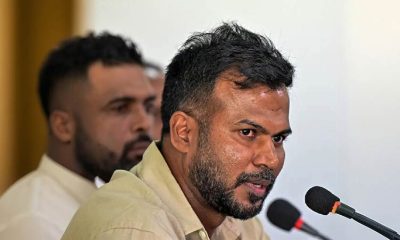
 Sports7 days ago
Sports7 days agoSri Lanka to mend fences with veterans
-

 Sports5 days ago
Sports5 days agoPathirana set to sling his way into Kiwi hearts
-
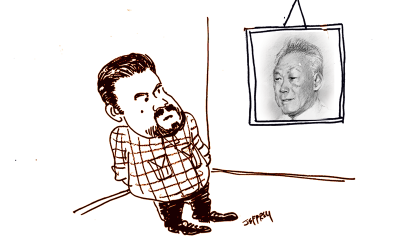
 Opinion7 days ago
Opinion7 days agoIs AKD following LKY?
-
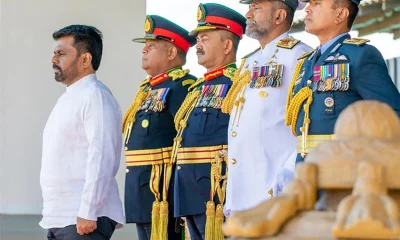
 News3 days ago
News3 days agoOffice of CDS likely to be scrapped; top defence changes on the cards
-
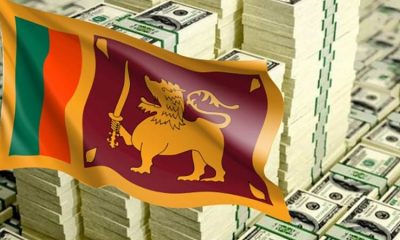
 News6 days ago
News6 days agoSL issues USD 10.4 bn macro-linked bonds
-

 Opinion7 days ago
Opinion7 days ago‘A degree is not a title’ – a response
-

 Editorial6 days ago
Editorial6 days agoRanil’s advice
-

 Editorial7 days ago
Editorial7 days agoLest watchdogs should become lapdogs


